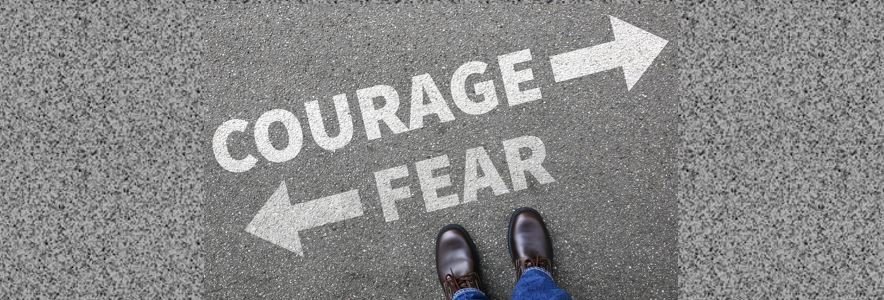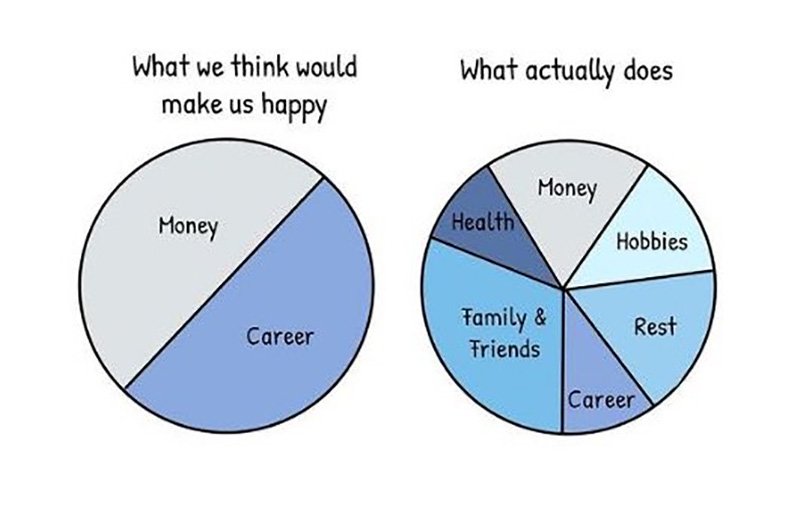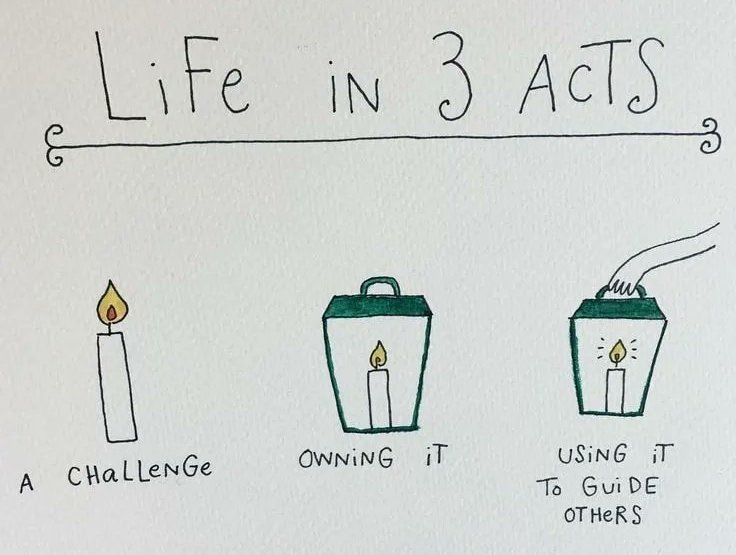The University of Virginia psychologist, Jonathan Haidt introduced me to a compelling elephant-rider analogy for thinking about behaviour change. Haidt argues that we have two sides: an emotional side (the elephant), and an analytical, rational side (its rider). Haidt's analogy has it that the rider is rational and can therefore see a path ahead while underneath him, the elephant provides the power for the journey. If the elephant chooses to go in another direction, is there anything the rider could do to stop it? From a pure physics standpoint, the answer is obviously “no”. The reality is the rider is not in charge, the elephant is and chooses to go where the rider wants to go. I think the big take away from this is in life, the rider is in the head and the elephant is in the heart. And it’s a useful framework for understanding the duality of human decision making.
A full understanding
Today is my father’s 85th birthday and to mark the occasion I would like to recognise some of his good qualities:
Appreciate the people who tell you the truth.
Appreciate the people who expand your mind.
Appreciate the people who forgive you first.
Appreciate the people who open doors for you.
Appreciate the people who make you laugh.
Appreciate the people who inspire you to grow.
Throwback Thursday
I wrote this back in November 2017 around data.
Big statement as an analogy: “Data is the new oil; analytics is the refinery for the data and intelligence is the fuel.” Data for data’s sake is interesting, with good hypothesis in you’ll get some great information out but with the volume of it, there is no way to go through it without some form of analytics. And there is no way that you can do something unless you are actually the mindset that is willing to think differently from what the intelligence tells you to do, and this may be counter intuitive to what you would have thought. Then you argue with the data and try to get the data to tell the story you want it to tell.
A metaphor from nature
How do you make your work and life more robust?
There is massive value just taking time away from the office to spend time with smart, inspired people as their ideas and energy will influence you. I think we can use nature as an example for us that life is about rebirth and transformation, becoming exactly who we believe ourselves capable to be. This is not only possible, but inevitable, if we let go of the struggle and speediness, and of the need to become our best instantly and without journeying through several unique stages. Nature’s metaphor releases us from a sense of battling against our circumstances and invites us to rely upon an innate, perhaps universal, order and timing.
“To have the results that very few have, we must be willing to start doing the things that very few are willing to do.”
Courage comes in many forms
Some have argued that courage should include overcoming a fear, while others have suggested that fear may or may not be present in the courageous act. Daniel Putnam in his book, “Psychological Courage” from 2004 stated that "courage involves deliberate choice in the face of painful or fearful circumstances for the sake of a worthy goal."
The 6 types of courage
Physical Courage
To keep going with balance, resilience, and awareness.Social Courage
To be yourself unapologetically.Moral Courage
Doing the right thing even when it’s uncomfortable or unpopular.Emotional Courage
Feeling all your emotions both positive and negative without guilt or attachment.Intellectual Courage
To learn, unlearn and relearn with an open and flexible mind.Spiritual Courage
Living with purpose and meaning through a heart centered approach towards all life and oneself.
Throughout my life people with guts have been solving problems, so I think courage is the choice and willingness to confront uncertainty, intimidation, danger, and pain.
Courage is a choice
No matter the risk or failures, keep going and never give up, if you never give you must succeed. I think the first part of courage is the courage to start, to face failure and rejection with the great possibility that it will not work out and you will feel embarrassed and upset. And the second part of courage is persistence, it’s the power to keep going, to keep pushing and driving yourself.
Don’t be afraid to disrupt the status quo, and to me, status quo means mediocrity and lack of ingenuity. We are all one action or one decision away from creating a better future and changing an outcome for ourselves. Contact me via e-mail when you’ve muscled up the courage to stand for something bigger than yourself and mean it.
It's worth noting
You did not choose your:
1. Birthplace
2. Skin colour
3. Birth parents
4. Birth gender
5. Birth language
6. Birth name
7. Ethnicity
8. Born abilities
You can choose to be:
1. Humble and kind
2. Generous
3. Gracefully honest
4. Grateful
5. Respectful
6. Optimistic
7. Unselfish
8. Self-aware
Confidence is important
I think confidence builds competence and it helps us to continue to improve and move from “I know how” to “I’ll try” to “I am doing it.” A lack of confidence can hold people back from reaching their full potential. Without confidence we won’t overcome discouragement, disappointment and challenges, and we likely won’t practice. And if things don't work out at first, confidence helps us try again and directly contributes to a more positive attitude and expectancy which are contagious and can help those around us grow too.
“An artist is not paid for his labour but for his vision.”
We reap what we sow
Intelligence is the ability to change your mind when presented with accurate information that contradicts your belief.
Closed mindset
Talking
Argumentative
Taking
Arrogant
Defensive
Blaming
Rigid
Open mindset
Listening
Empathetic
Giving
Humble
Collaborative
Educating
Adaptive
Care free
Those only who are happy are those who have their minds fixed on some object other than their own happiness. For example, the happiness of others, on the improvement of mankind, even on some art or pursuit followed not as a means but as itself as an ideal end. It means by aiming less at something else they find the way. I think your success in life depends on your ability to make good decisions. Your happiness depends on your ability to not care about the outcomes.
Saying it and doing it
I think that there are three things you must always ask yourself before you say anything:
Does this need to be said?
Does this need to be said by me?
Does this need to be said by me, now?
Confirmation bias
“Never confuse education with intelligence. Intelligence isn’t the ability to remember and repeat, like they teach you in school. Intelligence is the ability to learn from experience, solve problems, and use our knowledge to adapt to new situations.”
We begin with a choice
“To be old and wise, you must have been young and stupid.” I think that as soon as you understand that nobody owes you anything and you don’t have the right to be heard, seen, or appreciated, it makes it so much easier to let go of all of that. This action will free up all of your brain to do the things that you said you wanted to do in the first place.
It’s an epiphany when you realise that no one owes me anything as when I start believing that you owe me something, then I have signed up for that outcome and the toxic cycle of betting on the outcome. I have gratitude for the freedom that this realisation has given me, and I refuse to dance to the beat of someone else’s drum. I am grateful to those people who have given me the opportunity to do my work.
“The years teach much which the days never knew.”
Decisions making process
“Know your options and then make your choices.”
Traveling at last
Liz Fosslien ©
I’m in Napoli with my men’s club.
We are Flaneurs and we carried a set of rich associations: the men of leisure, the idlers, the urban explorers, the connoisseur of the street.
Dancing with fear
F.E.A.R. is an acronym for “False Evidence Appearing Real”.
There's no true threat of immediate physical danger, no threat of a loss of someone or something dear to us, actually nothing there at all. F.E.A.R. is an illusion. Something we fabricate in our own minds and pretend is real. Fear is something normal, your reaction to fear tells you who you are…
Lucky gene club
I won the birthday lottery and was privileged to being born in South London and to have Jamaican parents. I grew up thinking that it was normal to contribute in some way, whether it was by direct economic contribution, social presence or giving food and drink. It was expected of me to be part of something to make “something” better and this energy made it easy for other people to act on it. Character is not something that you buy; it is not a commodity that can be bartered for; it is not a quality suited for only the rich and famous; rather, character is built upon the foundational commitment of love, honesty, and compassion for others.
Feed the stallions and starve the ponies
Many years ago a lecturer explained the “feed the stallions, starve the ponies” life concept to me. He explained what this means: the more we feed and nurture our best attributes, the sooner and greater our chances of achieving our goals will be. I think one of the keys to success in life is to figure out what your strengths are, the formula I have used over the past 25 years is always the same: “Leverage on what is working and just because you can doesn’t mean you should.”
Another one bites the dust
I attended my good friend, Keith Thomas' wake (Nine Night) in London. This morning, I found our New Year’s resolution from 29th Dec. 2015.
My New Years resolution is to remain constant:
I will question.
I will speak my mind.
I will look for answers.
I will not be dictated too.
I will not tolerate injustice.
I will not tolerate ignorance.
I will continue to exchange views.
My mind shall remain transient - open to change. However I shall give up meat and restrict my alcohol intake. RIP buddy ❤️
Education vs. intellect
I love people who have no idea how wonderful they are and just wander around making the world a better place. I think you attract good people into your life based on your character, not possessions, appearance, or intellect.
“Never confuse education with intelligence. Intelligence isn’t the ability to remember and repeat, like they teach you in school. Intelligence is the ability to learn from experience, solve problems, and use our knowledge to adapt to new situations.”





















